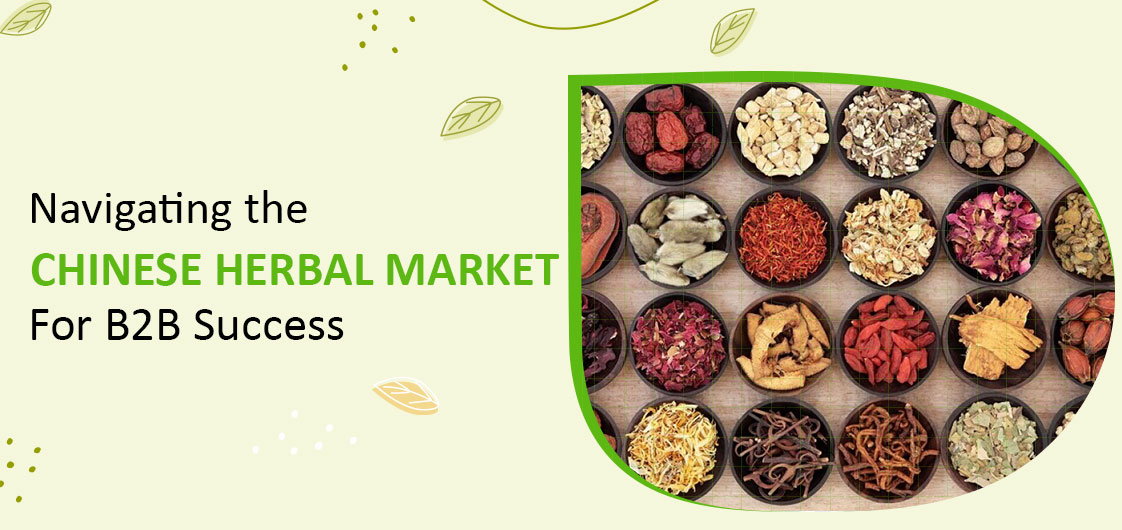The Chinese herbs market, a vibrant tapestry of tradition and innovation, offers immense potential for B2B buyers and suppliers. But with its vastness and complexities, navigating this landscape can be daunting. This guest post delves into the current trends, key considerations, and crucial quality control measures to help you thrive in this dynamic market.
Blooming Trends: What’s Hot in the Chinese Herbal Market?
- E-commerce surge: Online platforms connect buyers globally with Chinese herbal suppliers, streamlining sourcing and boosting accessibility.
- Focus on sustainability: Environmental concerns drive demand for organic and ethically sourced herbs, creating opportunities for suppliers to prioritize sustainable practices.
- Value-added products: Consumers increasingly seek convenient and ready-to-use herbal products, such as capsules and extracts. This opens doors for suppliers who can offer finished products or value-added services.
- Integration with Western medicine: The growing acceptance of Traditional Chinese Medicine (TCM) in the West is blurring lines, creating opportunities for collaboration and product development catering to both markets.
Choosing the Right Supplier: Stepping Stones to Success
- Reputation and track record: Choose suppliers with a proven history of quality and reliability. Look for certifications, positive customer reviews, and industry memberships.
- Product Range and Quality: Evaluate the diversity and quality of the herbal products offered by potential suppliers. A comprehensive product range allows for one-stop sourcing, while stringent quality control measures ensure consistency.
- Transparency and traceability: Ensure your supplier can provide detailed information about their herbs’ origin, cultivation, and processing. Traceability is key to building trust and ensuring compliance with regulations.
- Regulatory Compliance: Ensure the chosen suppliers comply with relevant regulations and certifications. This is particularly crucial for B2B buyers involved in the herbal ingredients wholesale sector, where adherence to quality standards is non-negotiable.
- Competitive pricing and payment terms: Negotiate fair prices and secure favorable payment terms to maintain a healthy business relationship.
- Communication and responsiveness: Effective communication is vital for building trust and resolving issues promptly. Look for suppliers who are readily available and responsive to your inquiries.
- Consistency in Supply: Choose suppliers capable of maintaining consistent quality across bulk orders. A reliable supply of high-quality herbs is essential for B2B buyers to meet market demand and uphold their reputation.
Quality Control: Your Gateway to Safe and Effective Products
- Third-party laboratory testing: Always demand independent testing of your herbs for purity, potency, and absence of contaminants.
- Verification of certifications: Don’t take certifications at face value. Verify their authenticity through official channels.
- Regular inspections: Conduct or regularly inspect your supplier’s facilities and practices to ensure adherence to quality standards.
By understanding the current trends, carefully choosing your suppliers, and prioritizing quality control, you can unlock the vast potential of the Chinese herbs market as a B2B buyer or supplier. Building trust, ensuring transparency, and adhering to strict quality standards are the cornerstones of success in this dynamic and ever-evolving landscape.
The Way Forward
In conclusion, navigating the Chinese herbs market requires vigilance and strategic decision-making. To thrive in this flourishing industry, B2B buyers and suppliers must adapt to current trends, carefully select reputable suppliers, and prioritize quality control and certification. By doing so, businesses can forge successful partnerships, meet consumer demands, and contribute to the continued growth of the Chinese herbal market.

